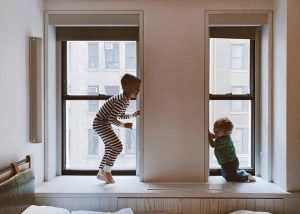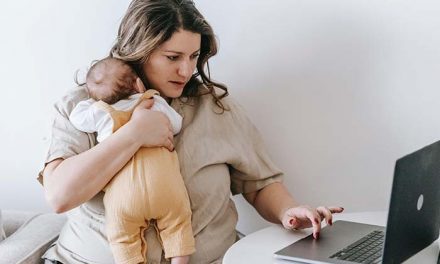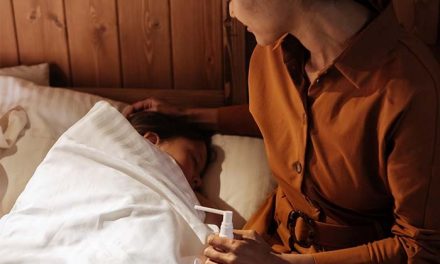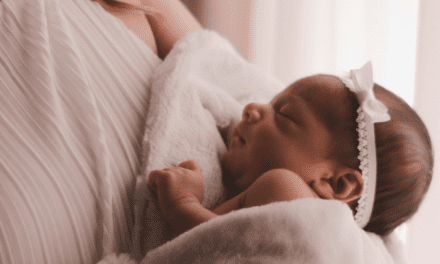Are you a new mom? Congratulations! As a new mom, there are many things to think about and take care of. One thing that’s probably not at the top of your list but is important is safety at home. Here are some safety measures for a newborn that will help you create a safe environment for your little one.
Bathing And Water Safety Measures For Newborn
Drowning and burning are major risks for babies during bath time.
Babies have very sensitive skin, which means that too hot water can easily burn them. Please ensure the water temperature is between 37 and 38 degrees before putting your child in to avoid burning them. You can measure the temperature using a thermometer, wrist, or elbow. Before bathing your baby, make sure everything is ready to avoid leaving your baby in between. The towel, face washer, cotton wool, clean nappy or diaper, and clean clothes should be there with you during bath time.
Another essential safety measure for a newborn is always supervising your babies during the bath. Let the water out when they finish bathing to avoid drowning. Leaving your older children to supervise their baby siblings is also not advisable since they have no skills to see and react to an emergency.
Breastmilk And Breastfeeding A Newborn
Breastmilk is a complete meal for babies, and the milk helps your baby build immunity. The milk contains beneficial bacteria, stem cells, white blood cells, enzymes, hormones, and other important antibodies. They all help prevent your baby from getting sick and help fight diseases. Therefore, it is safer to breastfeed your baby than give other forms of milk (if not optional).
Choking First Aid For Newborn
It is an important safety measure for a newborn that parents should know. Coughing, wheezing, gagging, distress, choking noises, difficult breathing sounds, no breathing, paleness, turning blue, and loss of consciousness are a few signs of a choking baby. If your baby shows a couple of these signs, you should do the following:
1) Lay your baby down on your forearm, open their mouth and give five firm blows (gentle taps) between the shoulder blades.
2) While doing this, keep checking if the blockage has cleared.
3) If the blockage is still present, perform chest compression.
It is best to learn how to perform first aid practices for your baby, such as CPR. Contact your doctor when you need help with signs of choking.
Falls Safety Measures For Newborn

Once your baby begins to crawl, ensure their safety to prevent physical injury.
Sometimes babies wiggle and move. It is advisable not to leave your baby alone on a changing table, beds, sofas, or chairs. When you hold your newborn, hold them securely and also teach your children how to hold their little sibling correctly. As they get older, ensure you put your baby in a playpen if you can’t carry him. If your baby can crawl, ensure that all the gates, doors, and windows are closed, or they might hurt themselves. If your baby falls and acts abnormal, visit a doctor to check for any internal injuries as soon as possible.
Sun Safety Measures For Newborn
Too much sun on your baby can cause sunburns, eye damage, skin cancer, skin damage and weaken their immune system. Although, your baby needs some sun to help make vitamin D. This is important for strong bones and muscles. You can always do it within a few minutes per day when the sun rays are not so hot. You can protect your child from the sun by dressing them in sun-protective clothing and applying sunscreen on their skin. Hats with straps are also good for keeping the baby comfortable.
Car Seat Safety Measures For A Newborn
Newborn safety measures include three-pointers to observe when traveling with your baby in a car.
1. You need to place your newborn baby in a rear-facing child seat that is the appropriate size for your baby. Install it correctly and properly fasten and adjust the seat to fit your child.
2. As you drive the car, safe driving is key. It is because car crashes are a threat to your child’s life, and most car accidents lead to the death of babies.
3. You should never put an infant in the front seat of your car, especially near airbags.
Conclusion
It’s therefore important to remember to make sure you have a first aid kit for choking emergencies and know how to administer CPR. Bathe your child in warm water and never leave them unattended near a pool or bathtub. And don’t forget the sun protection – infants need sunscreen too! If you have any questions about safety measures for newborns, please don’t hesitate to contact your doctor.






